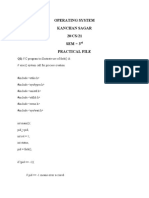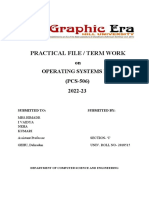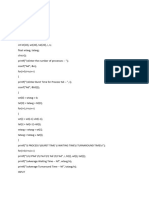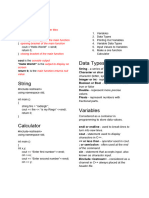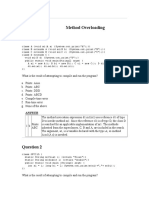0% found this document useful (0 votes)
37 views29 pagesOS Assignment
operating system questions answers
Uploaded by
DarkroomCopyright
© © All Rights Reserved
We take content rights seriously. If you suspect this is your content, claim it here.
Available Formats
Download as PDF, TXT or read online on Scribd
0% found this document useful (0 votes)
37 views29 pagesOS Assignment
operating system questions answers
Uploaded by
DarkroomCopyright
© © All Rights Reserved
We take content rights seriously. If you suspect this is your content, claim it here.
Available Formats
Download as PDF, TXT or read online on Scribd
/ 29


